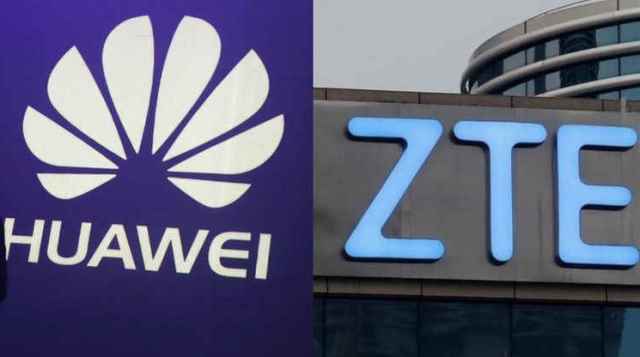The Federal Communications Commission (FCC) of the U.S. plans to vote in November to designate China’s Huawei and ZTE as national security risks, barring their U.S. rural carrier customers from tapping an $8.5 billion government fund to purchase equipment or services.

FCC also plans to propose requiring those carriers to remove and replace equipment from such designated companies, FCC said on Monday.
At a meeting set for Nov. 19, the FCC said it plans to vote to ask carriers how much it would cost to remove and replace Huawei Technologies and ZTE from existing networks and to establish a reimbursement program to offset the costs of removing the equipment.
“When it comes to 5G and America’s security, we can’t afford to take a risk and hope for the best,” FCC Chairman Ajit Pai said in a statement.
“As the United States upgrades its networks to the next generation of wireless technologies – 5G – we cannot ignore the risk that the Chinese government will seek to exploit network vulnerabilities in order to engage in espionage, insert malware and viruses, and otherwise compromise our critical communications networks.”
Huawei and ZTE would have 30 days to contest the FCC’s national security risk designation and a final order compelling removal of equipment is not expected until next year at the earliest.
“In 30 years of business, Huawei has never had a major security-related incident in the 170 countries where we operate,” said a Huawei spokesman in Shenzhen, China.
“Today’s proposal, released by the FCC Chairman, only impacts the broadband providers in the most unserved or underserved rural areas of the United States,” the spokesman said.
Ajit Pai first proposed in March 2018 to bar companies that posed a national security risk from receiving funds from the FCC’s Universal Service Fund, but did not name Huawei or ZTE. The fund provides subsidies to provide service in rural or hard-to-reach areas, and to libraries and schools.
The FCC argued the companies’ ties to the Chinese government and military apparatus, and Chinese laws requiring that such companies assist the Chinese government with intelligence activities, pose a U.S. national security risk.
About a dozen rural U.S. telecom carriers that depend on inexpensive Huawei and ZTE switches and equipment were in discussion with Ericsson and Nokia to replace their Chinese equipment, Reuters reported in June.
The United States has been pressing nations not to grant Huawei access to 5G networks and alleged Huawei’s equipment could be used by Beijing for spying.
Ajit Pai said in a Wall Street Journal opinion piece on Monday that China could compel Huawei to spy on American individuals and businesses. Imagine if a 5G network with Huawei equipment were operating near a U.S. military installation, critical infrastructure facility or other sensitive location.”
He also cited a report by cybersecurity firm Finite State that “found a majority of the Huawei firmware images it analyzed had at least one potential back door and that each Huawei device had an average of 102 known vulnerabilities.”
Several European countries in recent months have not agreed to bar Huawei, despite U.S. pressure.
The U.S. government added Huawei to its economic blacklist in May, saying the Chinese company was involved in activities contrary to U.S. national security.





